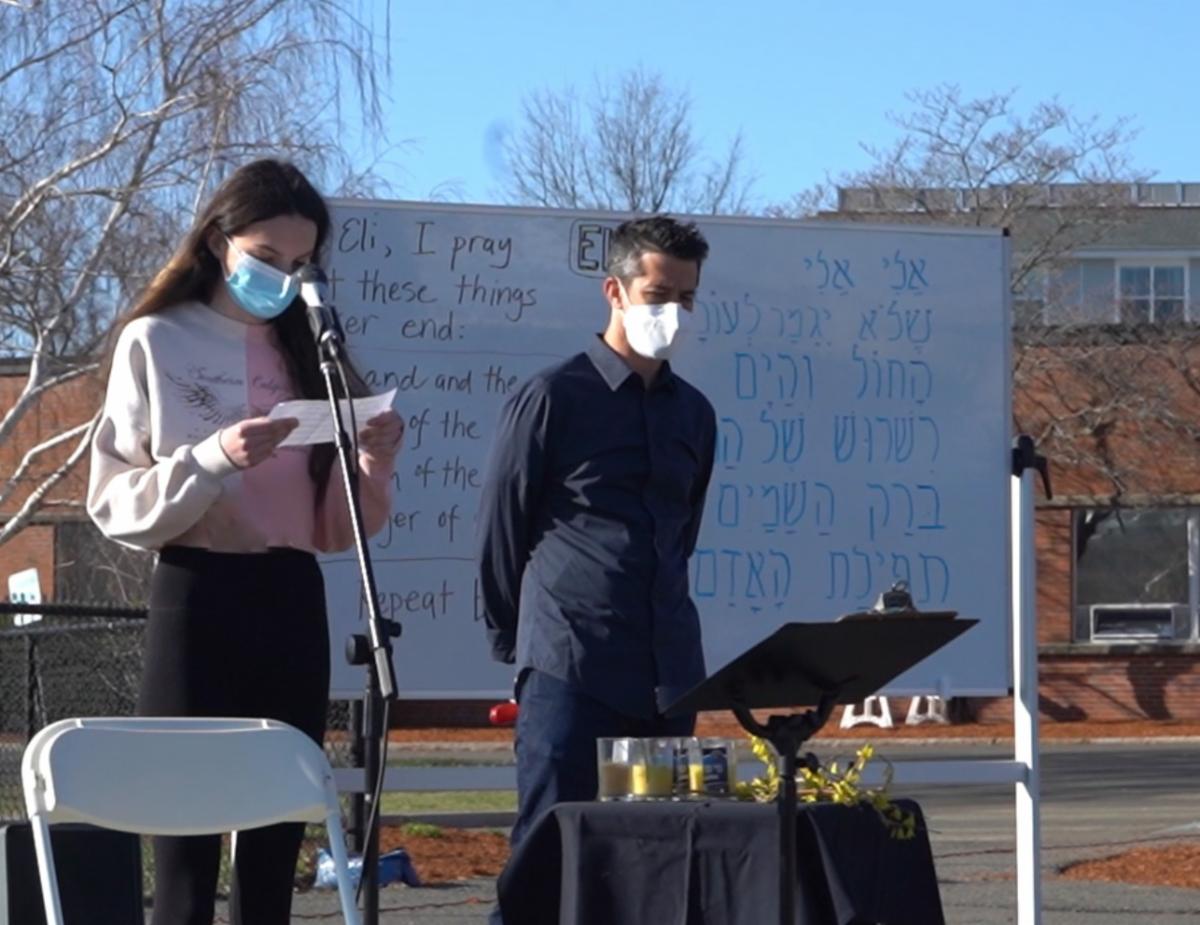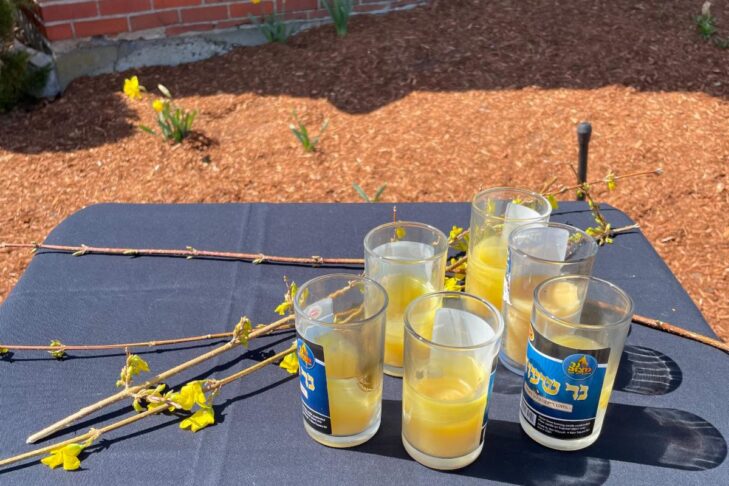In our last weekly conversation, we explored the Exodus story of Pesach and the charge presented to every person to relive the Passover story with each annual retelling. We began to grapple with the idea of history becoming memory, of long ago and far away stories becoming personal experiences. We found that although this is not always easy, it is possible to internalize these moments of our history to the point where they are components of our own identities. This practice is so important each year on Yom Hashoah V’Gevurah, when we remember the Holocaust and its effects on our collective identities all these years later. As with Pesach, this year we again asked ourselves how we can help our students connect to this history, to these personal stories of resilience, faith and survival.
On Thursday morning, we gathered students for a tekes, a communal assembly, to reflect together on the meaning of the day and the role each of us plays in the survival and continuity of this history. Oren Kaunfer, madrich ruchani, explored themes of heroism and resistance with our students, but the most resonant call to action was when Oren described how necessary it is for all of us to seek out stories from survivors of their experiences and the experiences of those who perished. That we must see it as our job as a group and as a generation to ask questions and share the answers so that these stories are not lost.

We then recounted that one of the most powerful, long-lasting ways to honor those who experienced the Holocaust is to get up close to their stories. That is what connects us to events that happened many years before many of us were born and helps us bring those memories far into our future. As we learn to seek out stories, to find out what memories lay behind the familiar faces of the people we know, we learn to connect and expect unshared stories in everyone we meet, and we begin to turn toward others with increased empathy, curiosity and sensitivity.
The sixth and seventh grade explored these stories in the classroom as they toured the New England Holocaust Memorial via the new NEHM tour app. This rich virtual experience, which is available to anyone touring the site in downtown Boston or from home, guides the viewer through multiple stops at the physical memorial, utilizing videos of survivor testimony and paying special attention to the design of the memorial itself. As the tour draws the attention of the viewer to the multiple locations of the word “Remember” on the walls of the memorial, students read:
“While this memorial allows us to grieve and recall those lost, it also pushes all of us to remember the hatred and evil, as well as the apathy. It reminds us of the bystanders that allowed the events of the Holocaust to take place. The memorial asks us to ‘Remember’ the events of the Holocaust whenever we see one group of people persecuting another. Remembering this particular history allows us to reflect on our own choices and actions today.”
The faces and voices of the survivors, all of whom are local to the Boston area, and the charge to listeners to bring the lessons of the Holocaust into their own lives and the choices they make, combine to create a powerful and real connection, and made an incredible impact on our sixth and seventh grade students.
Students in younger grades took a closer look at these personal narratives through the lens of art and painting, or by exploring storytelling. Each class experienced an age-appropriate way to connect and internalize the legacy of the Holocaust.
All students encountered the poem “Take a Giant Leap” written by survivor Sonia Weitz for Holocaust Remembrance Day. It reads, “Come, take this giant leap with me into the other world…the other place….” And that is the opportunity that we have tried to provide for all our students this week: the tools to leap into these stories, to learn to look more deeply and sensitively, to take up the task of keeping these moments of history alive for many years to come.
Shira Deener is head of school at JCDS.
The School Sparks blog appears periodically by various writers among the JCDS educational team. Learn more about JCDS, Boston’s Jewish Community Day School.
This post has been contributed by a third party. The opinions, facts and any media content are presented solely by the author, and JewishBoston assumes no responsibility for them. Want to add your voice to the conversation? Publish your own post here. MORE


